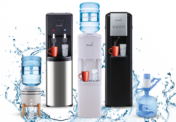Regulation
Company Secures Brewing Capacity as Regulatory Clouds Part.
Read More
Q&A with Closed Loop Executive Director Kate Daly: Future Smarts 2018
Says Plastic Packaging ‘Huge Risk’ for Beverage Industry
Read More
Report: Industry Calorie-Cutting Initiative Posted Progress in 2017.
Unclear Whether Progress is ‘Lasting Trend,’ Independent Evaluator Concludes.
Read More
Global Ventures and M&A Strategy Get KO Earnings Day Attention.
Plus, Quincey Details Thoughts on CBD.
Read More




